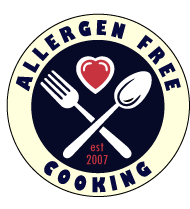Here is the transcript from the radio piece that ran on NPR in early 2011 concerning this study. Very interesting - FOOD MATTERS!
But Dutch researcher Lidy Pelsser says as many as two-thirds of those kids may not need medicine at all. It's a conclusion she recently published in the British medical journal Lancet. And Pelsser, who runs the ADHD Research Centre in the Netherlands, argues that in many cases, behaviors usually associated with ADHD can be controlled by changes in diet.
Dr. LIDY PELSSER (ADHD Research Centre): ADHD, it's just a couple of symptoms; it's not a disease. We should look for the cause of it. Like in eczema, the skin is affected. But a lot of people get eczema because of a latex allergy, or because they are eating a pineapple or strawberries.
And I think there is a paradigm shift needed. If a child is diagnosed ADHD, we should say OK, we have got those symptoms; now, let's start looking for the cause.
RAZ: The majority of children who are diagnosed ADHD are given medication, but you believe that this research suggests that many of those children may not need it, that they may simply need to alter their diets.
Dr. PELSSER: Well, what we know now is that in 64 percent of children with ADHD, ADHD is caused by food. It's a hypersensitivity reaction to food. So then, there is 36 percent left. In those children, we could start - research for dyslexia, for highly talented, or maybe children who are not so talented and who have to do too much in school and just don't manage to do it, and they are getting distracted, too, and they start fidgeting, too.
RAZ: Now, you're not saying that some children with ADHD should not be given medication, right? I mean, you're saying that even...
Dr. PELSSER: No.
RAZ: ...with your research, some kids will still need medication.
Dr. PELSSER: Yes. I think in all children, we should start with a diet research. And if that is not successful, if behavior doesn't - changes, well then we do need drugs. Of course, we do need them. But now, we are giving them all drugs, and I think that's a huge mistake.
RAZ: Explain how you tested the children. What did you feed them, for example?
Dr. PELSSER: In fact, we started with a very elaborate diet. And after two weeks, we made an inventory of the problems. If the problems still were there, we started to restrict the diet until we came to that few food diet - with only rice, turkey, pear and lettuce - and water.
RAZ: And we can know - or you say that your research shows that it only takes about five weeks to determine whether...
Dr. PELSSER: Yes, five weeks of diet. Parents should not start a diet for a year or so. It's only five weeks to find out whether diet is the cause.
RAZ: Right.
Dr. PELSSER: And if it isn't, that child can have drugs, of course. And if it is the diet, then we start to find out which foods are causing the problems.
RAZ: Right. But how would a parent listening now go about trying this? I mean, what should they do? You know, should they go talk to the doctors?
Dr. PELSSER: Well, we have got the good news that food is the main cause of ADHD. We've got the bad news that we have to train physicians to monitor this procedure because it cannot be done by a physician who is not trained.
RAZ: Now, did you hear from any of the schoolteachers of these kids, or even the physicians who describe changes in behavior?
Dr. PELSSER: Well, in fact, they were flabbergasted. After the diet, they were just normal children with normal behavior. They were no more easily distracted. They were no more forgetful. There were no more temper tantrums. Some teachers saying that they never thought it would work - it was so strange that a diet would change the behavior of a child as thoroughly as they saw it. It was a miracle, a teacher said.
RAZ: That's Lidy Pessler. She's from the ADHD Research Center in Eindhoven, in the Netherlands. She led a study that links diet to ADHD. It was published in the latest issue of the journal Lancet.
Dr. Pessler, thank you so much.
Ms. PESSLER: I was glad to join you.
Copyright © 2011 National Public Radio®. All rights reserved. No quotes from the materials contained herein may be used in any media without attribution to National Public Radio. This transcript is provided for personal, noncommercial use only, pursuant to our Terms of Use. Any other use requires NPR's prior permission. Visit our permissions page for further information.
NPR transcripts are created on a rush deadline by a contractor for NPR, and accuracy and availability may vary. This text may not be in its final form and may be updated or revised in the future. Please be aware that the authoritative record of NPR's programming is the audio."

No comments:
Post a Comment
Collective Mind = Solutions